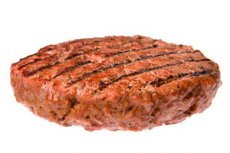New publications
Ultra-processed foods increase lung cancer risk
Last reviewed: 03.08.2025

All iLive content is medically reviewed or fact checked to ensure as much factual accuracy as possible.
We have strict sourcing guidelines and only link to reputable media sites, academic research institutions and, whenever possible, medically peer reviewed studies. Note that the numbers in parentheses ([1], [2], etc.) are clickable links to these studies.
If you feel that any of our content is inaccurate, out-of-date, or otherwise questionable, please select it and press Ctrl + Enter.

Higher consumption of ultra-processed foods (UPF) is associated with an increased risk of lung cancer, suggests a study published online in the journal Thorax.
More research is needed in different population groups, but limiting consumption of such foods could help reduce the global incidence of the disease, the researchers note.
Lung cancer is the most common cancer in the world, with about 2.2 million new cases and 1.8 million deaths from the disease worldwide in 2020 alone, they point out.
Ultra-processed foods typically go through many stages of processing, contain long lists of additives and preservatives, and are ready to eat or reheat. High consumption of such foods has already been linked to increased risk of various diseases, and the researchers wanted to find out whether this included lung cancer.
They used data from the US Prostate, Lung, Colorectal, and Ovarian Cancer Screening Trial (PLCO), which included 155,000 people aged 55 to 74 years who were randomly assigned to screening or comparison groups between November 1993 and July 2001. Cancer diagnoses were followed through the end of 2009, and cancer deaths were followed through the end of 2018.
The study included 101,732 individuals (50,187 men and 51,545 women, mean age 62 years) who completed a food frequency questionnaire at study entry. All foods were classified as unprocessed or minimally processed, containing additives, processed, and ultra-processed.
The researchers focused specifically on UPFs, which included: sour cream, cream cheese, ice cream, frozen yogurt, fried foods, bread, baked goods, salty snacks, breakfast cereals, instant noodles, commercial soups and sauces, margarine, baked goods, sugary sodas, sweetened fruit drinks, hamburgers and hot dogs from restaurants/stores, and pizza.
The average calorie-adjusted UPF intake was almost 3 servings per day, but ranged from 0.5 to 6. The most commonly consumed were processed meats (11%), diet or caffeinated sodas (just over 7%), and decaffeinated sodas (almost 7%).
During a median follow-up of 12 years, 1,706 new cases of lung cancer were diagnosed, including 1,473 (86%) cases of non-small cell lung cancer (NSCLC) and 233 (14%) cases of small cell lung cancer (SCLC).
The incidence was higher among those who ate more UPFs than those who ate less (495 of 25,434 versus 331 of 25,433).
After accounting for potentially confounding factors, including smoking and overall diet quality, participants with the highest UPF intake (upper quartile) had a 41% higher risk of being diagnosed with lung cancer compared with those in the lower quartile.
In particular, the risk of being diagnosed with non-small cell lung cancer was 37% higher, and small cell lung cancer was 44% higher.
This is an observational study, and as such cannot establish cause and effect. The researchers acknowledge that they were unable to account for smoking intensity, which could have affected the results. Dietary information was only collected once, which did not allow for changes over time, and the overall number of diagnoses was relatively small.
However, researchers highlight the low nutritional value of UPF and the excessive sugar, salt and fat content of such products.
“What’s worse is that over the past two decades, the consumption of ultra-processed foods has increased significantly worldwide, regardless of development level or economic status. The rise in UPF consumption may have been a driving force behind the global increase in obesity, cardiovascular disease, metabolic disorders, cancer, and mortality, as these foods are well-established risk factors for these conditions,” they suggest.
High UPF consumption may also crowd out healthy foods such as whole grains, fruits and vegetables, which are known to protect against cancer, the researchers suggest, explaining their findings.
“Industrial processing alters the structure of food, affecting the availability and absorption of nutrients and creating harmful contaminants,” they add, pointing to acrolein, found in fried sausages and caramel, and a toxic component of tobacco smoke. Packaging materials may also play a role, they say.
They conclude: "These findings require confirmation in other large prospective studies in different populations and settings... If a causal relationship is established, curbing the global increase in UPF consumption may help reduce lung cancer incidence."
